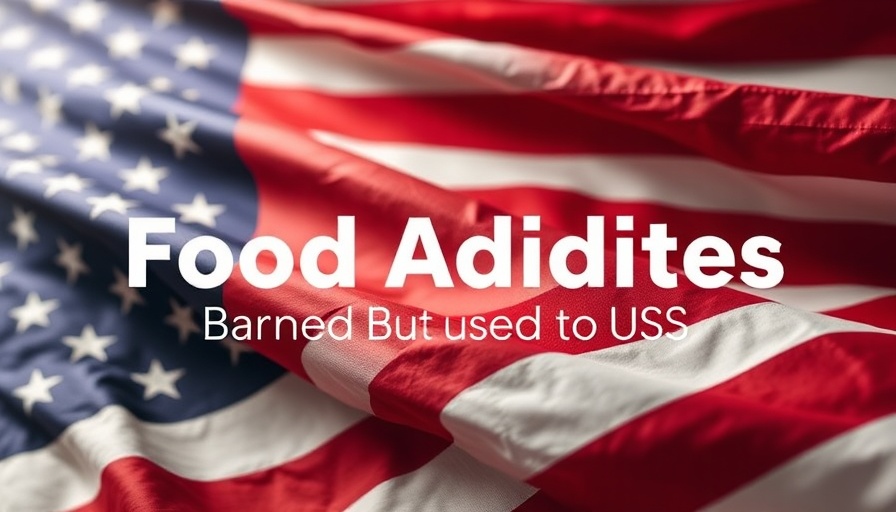
Understanding the Differences: Food Additives in Europe vs. the U.S.
As health-conscious individuals, many of us assume that food safety guidelines in our modern world are consistent across countries, especially between the U.S. and Europe. However, when it comes to food additives, a stark reality reveals a divide that could impact our health.
In Europe, many substances that are still legal in the U.S. have been completely banned due to health concerns. This fact prompts an important question: Are we adequately protecting our health by consuming products available on the American grocery shelves?
What Are Food Additives and Why Are They Used?
Food additives are substances added to food products to achieve specific purposes, such as preservation, flavor enhancement, and color improvement. While some additives are harmless and even beneficial, others have raised significant health concerns. For example, preservatives may prevent spoilage, but they can cause adverse reactions in sensitive individuals.
Common Additives Banned in Europe but Still Allowed in the U.S.
Here are some key food additives to avoid that are prohibited in Europe but still permitted in the U.S.:
- Azodicarbonamide: Often used in bread as a dough conditioner, this chemical has been linked to respiratory issues and allergies and is banned in Europe.
- Potassium Bromate: Another common dough enhancer, potassium bromate is recognized as a potential carcinogen in animals and has been banned in many countries including those in the EU.
- Red 40: A synthetic dye associated with hyperactivity in children, Red 40 is prevalent in processed foods in America but has been linked to negative health effects and is restricted in Europe.
The Importance of Going Organic or Natural
In response to these concerns, many health-conscious consumers are turning to organic, whole foods that are minimally processed and free of harmful additives. Opting for organic products not only supports a healthier lifestyle but also encourages sustainable agricultural practices that benefit the environment.
How to Make Informed Choices at the Grocery Store
Being educated about the food you eat is essential for your health and that of your family. Here are a few tips to help you make better decisions when shopping:
- Read Labels: Familiarize yourself with common food additives and make it a habit to read ingredient lists. Look for products without additives or those that use natural alternatives.
- Shop Local: Find local farmers’ markets or co-ops that offer organic or chemical-free produce. Building relationships with local vendors can also ensure transparency about farming practices.
- Prioritize Whole Foods: Foods that are minimally processed, such as fresh fruits, vegetables, grains, and meats, will invariably contain fewer harmful additives compared to highly processed products.
Community Empowerment: Speaking Up for Change
Awareness is a powerful tool. Share this knowledge with your friends and family so that they can make informed decisions about the food they consume. Engage with organizations advocating for better food policies, and support efforts aimed at promoting healthier food options in your community.
Final Thoughts: Choose Health for You and Your Family
As consumers, we need to recognize the importance of knowing what we put into our bodies. Understanding the differences between food safety regulations in the U.S. and Europe allows us to make informed choices, ultimately leading to a healthier lifestyle for ourselves and our families.
Empower yourself by reading labels, choosing natural over synthetic, and spreading the word about avoiding unnecessary additives. Small changes can lead to significant positive impacts on our health!
 Add Row
Add Row  Add
Add 




Write A Comment